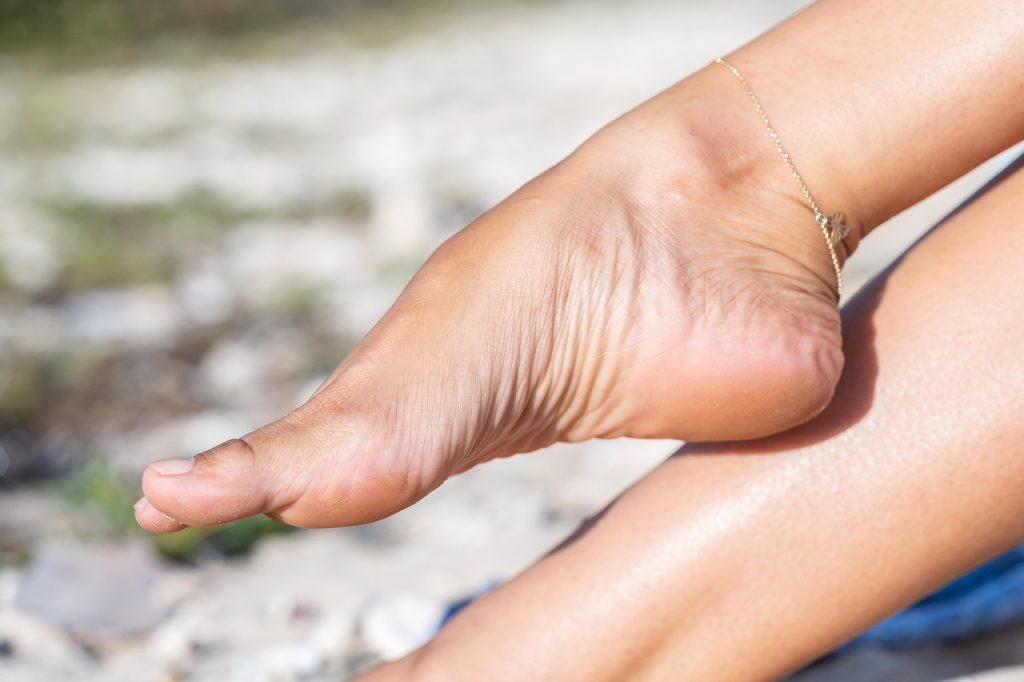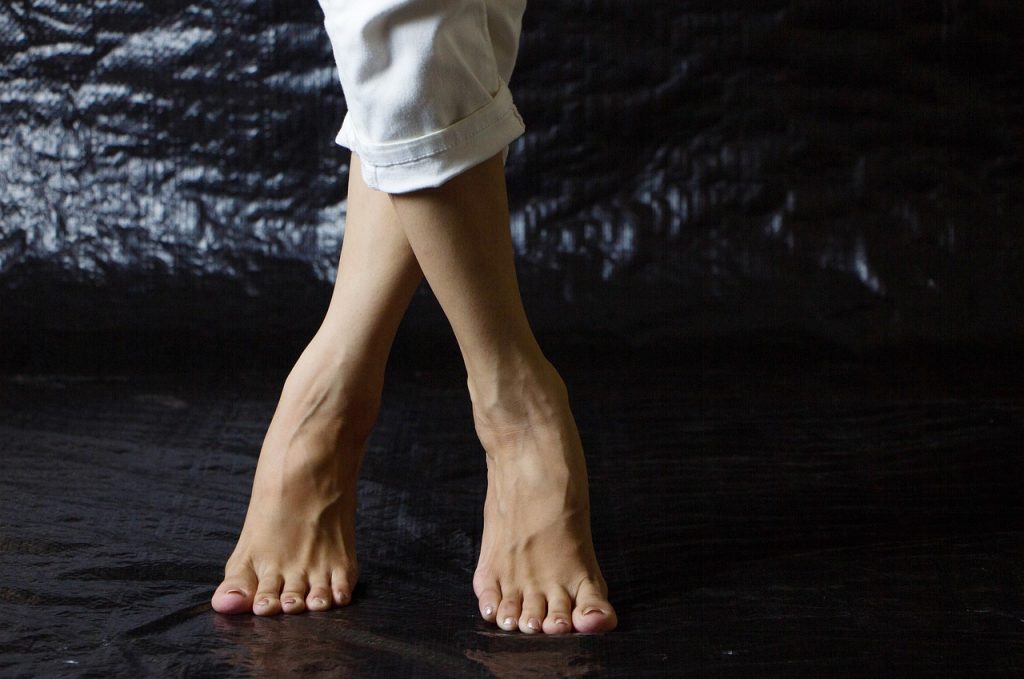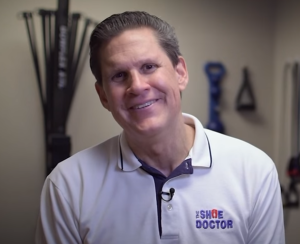Did you know that over 25% of the population suffers from overpronation, a common foot condition causing discomfort and pain? When it comes to finding relief for heel pain and flat feet, the debate between custom orthotics and over-the-counter solutions rages on. While both options aim to correct alignment issues and help flat feet, their effectiveness varies significantly in quality and size. Custom orthotics offer personalized support tailored to your unique foot structure, providing targeted relief. On the other hand, over-the-counter inserts are easily accessible but may lack the precision needed for severe overpronation. In this post, we delve into the pros and cons of each solution to help you make an informed decision for happy feet.
Understanding Overpronation
Definition And Causes
Overpronation refers to excessive inward rolling of the foot during walking or running, impacting the foot’s natural mechanics. This can lead to stress on the ankles, knees, and hips over time. Common causes include flat feet, wearing improper footwear, or muscle imbalances in the lower body.
Beyond affecting just the feet, overpronation can have a cascading effect on the entire body’s alignment and posture. This imbalance can lead to issues such as plantar fasciitis, shin splints, Achilles tendonitis, and even back pain.
Impact On Foot Health
Untreated overpronation can result in various that extend beyond discomfort while walking or running. It significantly increases the risk of developing conditions like plantar fasciitis, where the tissue connecting your heel bone to your toes becomes inflamed. Shin splints are another common consequence of overpronation due to added stress on the shinbone and surrounding tissues.
Addressing overpronation promptly is crucial for maintaining overall foot health and preventing more severe complications down the line. By using custom orthotics or appropriate footwear, individuals can correct their gait mechanics and reduce excess pronation to alleviate symptoms and prevent further injuries.
Orthotics Overview
Custom VS. Over-The-Counter
Custom orthotics are individually crafted to fit the unique contours of a person’s feet, providing personalized support. In contrast, over-the-counter (OTC) insoles are mass-produced and come in standard sizes.
Custom orthotics are ideal for addressing specific foot conditions like overpronation, plantar fasciitis, or high arches due to their tailored design. On the other hand, OTC insoles offer generalized support and may not effectively target individual issues.
When it comes to affordability, OTC insoles are generally more cost-effective than custom orthotics since they don’t require professional fitting or customization. However, custom orthotics offer superior benefits for those with chronic foot problems.
How They Work
Custom orthotics work by aligning the foot and ankle into the most anatomically efficient position, correcting any irregularities in gait or posture. These orthotics are designed based on a detailed assessment of an individual’s foot structure and walking pattern.
In contrast, OTC insoles primarily provide cushioning and shock absorption without addressing specific alignment issues. While they can enhance comfort during daily activities, they may not offer the same level of corrective support as custom orthotics.
Both custom orthotics and OTC insoles aim to improve overall comfort by reducing pressure points and distributing weight evenly across the feet. However, custom orthotics excel at providing targeted relief for conditions like overpronation that can lead to chronic pain.
Custom Orthotics Explained
Tailored Fit
Custom orthotics are individually crafted after a detailed assessment of the wearer’s feet, ensuring a personalized fit. This tailored approach is crucial for addressing overpronation effectively by providing specific support where needed. Unlike OTC insoles, custom orthotics offer precise adjustments to correct foot alignment issues.
Creating custom orthotics involves molds and measurements unique to each individual, guaranteeing an exact match to the foot’s contours. The importance of this tailored fit cannot be overstated as it ensures optimal comfort and support, especially for those struggling with overpronation. In contrast, OTC insoles lack this level of customization, often leading to ineffective correction of overpronation.
Long-Term Benefits
The lasting advantages of custom orthotics extend to both durability and effectiveness. These orthotics are designed to withstand extended use, providing continuous support for years depending on the wearer’s activity levels. The long-term benefits include improved posture, reduced pain, and enhanced overall foot health compared to the temporary relief offered by OTC insoles.
Over time, custom orthotics prove their worth through consistent performance and reliability. Their durability translates into sustained correction of overpronation issues, offering ongoing comfort and stability. In contrast, OTC insoles may wear out quickly and lose their effectiveness, requiring frequent replacements that can add up in terms of cost and inconvenience.
Limitations And Costs
While custom orthotics offer unparalleled benefits, they come with certain limitations that need consideration. The initial higher cost associated with custom orthotics may deter some individuals from opting for this personalized solution. Obtaining custom orthotics requires a professional assessment, which adds to the overall expense.
When weighing the financial aspects, it’s essential to compare the upfront investment in custom orthotics with the more affordable OTC insoles available off-the-shelf. While custom orthotics may have higher initial costs, their long-term benefits often outweigh the expenses associated with multiple purchases of OTC alternatives. Cost and accessibility play significant roles in determining which option suits an individual’s needs best.
Over-The-Counter Insoles Overview
Accessibility And Price
Retail stores offer easy access to a variety of OTC insoles, making them convenient for immediate purchase. Custom orthotics, on the other hand, require a podiatrist’s assessment and are typically not available off-the-shelf. Price range differs significantly between custom orthotics and OTC insoles, with custom options being more expensive. Affordability and convenience are key factors when deciding between custom orthotics and OTC insoles.
General Support Features
OTC insoles provide general support for mild to moderate discomfort related to overpronation, offering cushioning and minor correction. Custom orthotics are tailored to address severe overpronation and structural abnormalities with personalized support features. The level of support varies greatly between custom orthotics and OTC insoles due to the personalized nature of custom orthotics.
Shortcomings For Overpronation
Relying solely on OTC insoles may have shortcomings for addressing overpronation, especially in cases of severe overpronation. OTC insoles might lack the corrective measures needed for significant overpronation issues, potentially leading to inadequate support. Considering custom orthotics is crucial for individuals with substantial overpronation problems that cannot be effectively managed by OTC insoles.

Comparing Effectiveness For Overpronation
Support And Alignment
Custom orthotics offer targeted support and alignment correction by being specifically designed to address individual foot issues. These orthotics are customized based on a detailed analysis of the foot’s structure and gait pattern, providing precise support where needed. In contrast, over-the-counter insoles offer generalized support without the tailored adjustments necessary for correcting specific alignment problems. For individuals with overpronation, the specific support and alignment correction provided by custom orthotics can be more effective in managing the condition.
Support and alignment are crucial factors in managing overpronation effectively. Custom orthotics play a significant role in providing the necessary support to reduce excessive inward rolling of the foot. By addressing alignment issues at their root cause, these orthotics help improve overall foot function and alleviate discomfort associated with overpronation. On the other hand, OTC insoles may not offer the same level of targeted support, potentially leading to inadequate correction of alignment problems.
Durability And Adaptability
When comparing custom orthotics to over-the-counter insoles, durability is a key consideration. Custom orthotics are typically made from high-quality materials that ensure longevity and resilience, making them more durable than OTC insoles. Due to their personalized nature, custom orthotics can also adapt to changes in foot biomechanics over time, providing continuous support as the foot’s needs evolve. This adaptability contributes to their long-term effectiveness in managing overpronation.
The durability of custom orthotics plays a critical role in their ability to maintain consistent support for individuals with overpronation. Unlike OTC insoles that may wear out quickly and require frequent replacement, custom orthotics offer lasting support due to their robust construction. The adaptability of custom orthotics allows them to accommodate any changes in foot structure or gait pattern, ensuring ongoing effectiveness in correcting alignment issues associated with overpronation.
Pros And Cons Summarized
Custom Orthotics Pros
Custom orthotics offer tailored support for individuals with overpronation, addressing their specific foot needs effectively. These orthotics are designed to correct structural abnormalities and provide long-lasting durability. The personalized nature of custom orthotics ensures a precise fit for maximum comfort.
Custom orthotics excel in addressing severe overpronation, offering enhanced stability and alignment for the feet. By providing targeted support, custom orthotics can help alleviate pain and discomfort associated with overpronation.
Custom Orthotics Cons
While custom orthotics offer numerous benefits, they come with some drawbacks to consider. The higher initial cost of custom orthotics may deter some individuals, as they tend to be more expensive than over-the-counter alternatives. Obtaining custom orthotics requires a professional assessment, adding an extra step to the process.
Compared to purchasing over-the-counter insoles, acquiring custom orthotics can be a time-consuming process due to the customization involved. Individuals may experience an adjustment period when transitioning to custom orthotics, potentially leading to temporary discomfort.
OTC Insoles Pros
Over-the-counter (OTC) insoles present a more affordable option for individuals seeking foot support compared to custom orthotics. Their affordability and widespread availability make them accessible to a broader range of people. OTC insoles offer general support and cushioning benefits suitable for mild to moderate cases of overpronation.
The convenience of purchasing OTC insoles at retail locations without the need for customization appeals to many consumers looking for immediate relief without the hassle of appointments or assessments.
OTC Insoles Cons
Despite their affordability and accessibility, OTC insoles have limitations when it comes to providing tailored support for severe overpronation. They may not offer the same level of correction needed for individuals with significant foot issues. OTC insoles also have a shorter lifespan compared to custom orthotics, requiring more frequent replacement.
Individuals with severe overpronation may find that OTC insoles are not as effective as custom orthotics in addressing their specific condition, potentially leading to ongoing discomfort and inadequate support.
Making The Right Choice
Assessing Your Needs
To determine the level of support needed, individuals should assess their foot arches and observe any signs of discomfort. Seeking professional advice is crucial for severe overpronation or underlying foot conditions. Factors like pain intensity and daily activities play a role in choosing between custom orthotics and OTC insoles.
When it comes to evaluating the best option, individuals should consider factors such as the severity of overpronation, existing foot conditions, and long-term foot health goals. For severe overpronation or structural abnormalities, custom orthotics are often the recommended choice to provide tailored support and alignment correction.
When Choosing Custom
Custom orthotics are ideal for cases of severe overpronation, chronic foot pain, or structural abnormalities requiring specialized support. The benefits include long-term foot health improvements, personalized correction, and enhanced comfort. Indicators like persistent pain, visible gait irregularities, or frequent injuries may signal the need for custom orthotics.
On the other hand, opting for OTC insoles can be sufficient for mild to moderate overpronation or general discomfort without underlying issues. They offer convenience, affordability, and accessibility for immediate relief and preventive measures. In cases where customization is not essential, OTC insoles can provide ample support during daily activities.
Opting For OTC Insoles
Individuals with mild to moderate overpronation can benefit from the cost-effectiveness and convenience of OTC insoles. These off-the-shelf options are suitable for preventive measures and temporary relief from discomfort. Situations, where customization is unnecessary due to manageable symptoms or lifestyle adjustments, can make OTC insoles a practical choice.
Practical Recommendations
Consulting A Specialist
Consult a healthcare professional or podiatrist for a thorough assessment of overpronation. These specialists can offer personalized recommendations based on individual foot biomechanics. Healthcare professionals play a crucial role in guiding individuals toward the most suitable orthotic solution.
Trial And Error Approach
e individuals go through a trial and error process to find the right orthotic solution. Testing different options is essential to determine the most effective support for overpronation. Feedback from wearing custom orthotics or OTC insoles helps refine the choice for long-term foot health.
Summary
You’ve learned about overpronation, the benefits of custom orthotics, and the convenience of over-the-counter insoles. Understanding these options helps you make an informed decision for your overpronation needs. Custom orthotics offer tailored support, while over-the-counter insoles provide a cost-effective solution. Consider your priorities and budget when choosing between them. Remember to consult a healthcare professional for personalized advice based on your specific condition.
Making the right choice between custom orthotics and over-the-counter insoles is crucial for managing overpronation effectively. Evaluate your needs, weigh the pros and cons outlined, and select the option that aligns best with your lifestyle and requirements. Your foot health is essential, so take the time to invest in the solution that will support you best.
Frequently Asked Questions
1. What Is Overpronation And Why Is It Important To Address?
Overpronation is the excessive inward rolling of the foot during walking or running. Addressing overpronation is crucial as it can lead to various issues like plantar fasciitis, shin splints, and knee pain.
2. How Do Custom Orthotics Differ From Over-The-Counter Insoles?
Custom orthotics are specially made to fit your feet based on a detailed assessment by a podiatrist, providing personalized support. Over-the-counter insoles are pre-made and offer general arch support without customization.
3. Are Custom Orthotics More Effective Than Over-The-Counter Insoles For Overpronation?
Custom orthotics are usually more effective for severe cases of overpronation as they are tailored to your specific needs. Over-the-counter insoles can be sufficient for mild to moderate overpronation but may not provide optimal support for severe cases.
4. What Are The Pros And Cons Of Using Custom Orthotics For Overpronation?
Pros of custom orthotics include precise support and correction, while cons may include a higher cost and the need for a professional fitting. However, the benefits often outweigh the drawbacks due to their effectiveness in addressing overpronation.
5. Any Practical Recommendations For Choosing Between Custom Orthotics And Over-The-Counter Insoles For Overpronation?
For severe overpronation or chronic foot issues, custom orthotics prescribed by a podiatrist are recommended. For mild to moderate cases or occasional use, quality over-the-counter insoles may suffice. Always consult with a healthcare professional for personalized advice.
Improve Your Mobility With Custom Orthotics For Overpronation Relief!
Struggling with overpronation can severely limit your mobility and lead to discomfort and pain. If you’re seeking effective relief, custom orthotics tailored specifically for overpronation, coupled with expert guidance, can make a world of difference. These orthotics not only alleviate pain but also enhance mobility and prevent further strain on your feet.
The Shoe Doctor, boasting over two decades of experience, specializes in crafting custom orthotics designed to support individuals dealing with overpronation. Our goal is to provide orthotic solutions that not only relieve pain but also promote foot health and ensure stability throughout your daily activities. Our specialists are dedicated to delivering personalized care, ensuring that each orthotic is meticulously fitted to cater to your individual requirements.
Utilizing cutting-edge technology, we generate precise 3D foot scans, allowing us to create custom orthotics that seamlessly integrate with your everyday shoes. Embark on the journey towards improved mobility today. If you reside in the South San Francisco Bay Area, The Shoe Doctor is your go-to destination for tackling discomfort associated with overpronation. We’re here to guide you every step of the way, starting with a complimentary initial consultation to kickstart your path to relief and enhanced mobility. Schedule your consultation now!
Disclaimer
The materials available on this website are for informational and entertainment purposes only and not to provide medical advice. You should contact your doctor to obtain advice concerning any particular issue or problem. You should not act or refrain from acting based on any content included in this site without seeking medical or other professional advice. The information presented on this website may not reflect the most current medical developments. No action should be taken in reliance on the information contained on this website and we disclaim all liability for actions taken or not taken based on any or all of the contents of this site to the fullest extent permitted by law.


